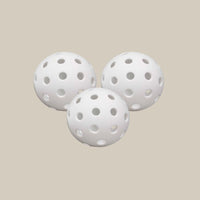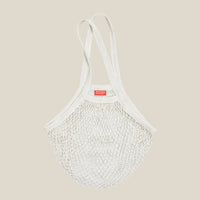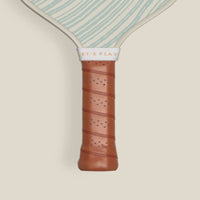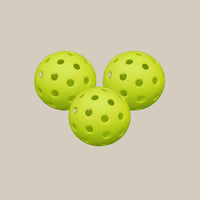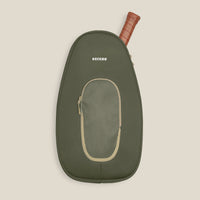Introduction to Pickleball Court Dimensions
Whether you're a seasoned player or just dipping your toes into pickleball, one thing's for certain: understanding pickleball court dimensions is an absolute game-changer. In this post, we'll delve into the details of pickleball court dimensions and explore how they help in unlocking your full potential on the court.
The Importance of Knowing Pickleball Court Dimensions
From strategy development to positioning, a solid grasp of the dimensions of the court can mean the difference between a win or loss.
Standard Dimensions of a Pickleball Court
Let's start with the basics. A standard pickleball court measures 20 feet wide and 44 feet long, which is slightly smaller than a tennis court. This compact size lends itself to faster-paced action, making pickleball an exciting fusion of tennis, badminton, and ping pong.
How Pickleball Court Dimensions Differ from Other Sports
A pickleball court is about the size of a doubles badminton court, yet smaller than a tennis court or volleyball court.
Understanding the Role of Court Dimensions in Gameplay
Court dimensions play a fundamental role in shaping the dynamics of the game. Let's break down the court to see how each section contributes to the gameplay.
Breaking Down the Pickleball Court
The Service Zones
Serves must land in this area to initiate a rally. With specific dimensions, these zones can influence the angle and speed of your serves, affecting your opponent's ability to return them effectively.
The Non-Volley Zone (Kitchen)
This is the 7-foot area adjacent to the net where volleys are not allowed. Mastering your movements within this zone is crucial for maintaining control and setting up strategic dink shots.
The Baselines and Sidelines
The boundaries of the court determine whether a shot is in or out. Understanding these dimensions allows you to make split-second decisions about whether to let the ball go or take a swing.
The Centerline and the Service Court Centerline
These lines divide the court into sections and dictate where you can stand during serves and rallies. Proper positioning can give you a tactical advantage, allowing you to control the flow of the game.
Detailed Measurements of Each Court Section
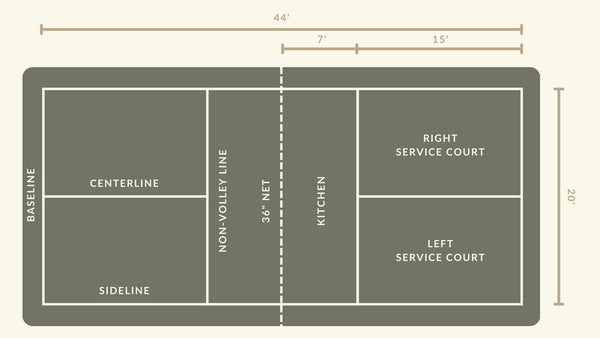
Let’s get specific:
The Exact Size of the Service Zones
These are 10 feet deep and extend from the net to the baseline. Serving accurately within these zones sets the tone for the point.
The Non-Volley Zone (Kitchen) Dimensions
This 7-foot zone restricts volleys near the net. Controlling your movements here leads to skillful shots.
The Baselines and Sidelines Measurements
Shots outside these boundaries are out of play. Precision and accuracy become vital to keeping the ball in.
The Centerline and the Service Court Centerline Length
These lines divide the court symmetrically and affect your positioning.
Decoding the Court Markings
Court markings serve a purpose. Different colors and lines aid in navigation and decision-making.
Understanding the Purpose of Each Court Marking
Each marking affects player movement and shot placement.
The Significance of Different Court Marking Colors
Colors guide your understanding of the court's layout, like where the kitchen or non-volley zone starts or ends.
How Court Markings Can Impact the Game
Using markings strategically creates shot opportunities and efficient court coverage.
Proper Maintenance of Court Markings
Regular maintenance ensures fair and accurate play by preventing faded or distorted markings.
Building Your Own Pickleball Court
Considering building a court? Here's a guide:
The Space Required for a Pickleball Court
Measure properly to ensure your court meets regulation size: 20 x 44 feet; The recommended playing area should be 34 x 64 feet to leave room for chasing after pickleballs.
Step by Step Guide to Lay Out Court Dimensions
Step 1: Begin in the area that you’d like to build out your court, and measure out 20-feet in as straight of a line as possible. Use a string and tape to the ground or mark the end of the measurement with chalk.
Step 2: Use a large carpenter’s square to create a right angle and measure out 44 feet and tape that end to the ground.
Step 3: Repeat Step 2 at a right angle to your last corner and then repeat step 3 at a right angle to that corner.
Step 4: Once you have four square corners and you have assured that measurements are accurate, use court tape or line spray to secure the frame of the court.
Step 5: Now that the basic outline is in place, measure 22 feet from the end line and set up one side of the net post. Do the same from the other side to set up the other net post.
Step 6: From each corner, make a mark 15 feet in, towards the net. Paint or tape horizontally over the line to make the kitchen line.
Step 7: Measure in 10 feet from the outside in on your kitchen line. Do the same on each end line to make the center line and tape or paint over it.
Step 8: The court is all marked. Let’s play!
Common Mistakes to Avoid When Building a Court
Court Orientation: Take the recommendation from USAPA and build your court north to south. This helps mitigate problems with elements like wind, shade and sun.
Noise Levels: Make sure to check with any neighbors, homeowners association or community groups before building a pickleball court to ensure there are no rules about pickleball noise.
Maintenance Tips for Your Pickleball Court
A little maintenance can go a long way. Regularly check the court for any cracks, uneven surfaces, or faded lines. Give the court a regular sweep to keep falling leaves and other debris at bay, preventing slips and falls. A fresh coat of paint now and then will not only keep your court looking nice but also maintain accurate boundary markers. By giving your pickleball court the care it deserves, you'll save yourself time and bigger repairs in the future, so that there’s less downtime off the court!

Conclusion: Mastering the Pickleball Court
Understanding How Court Dimensions Can Improve Your Game
Understanding court dimensions can enhance your game. The dimensions are your toolset for successful rallies, strategic play, and outsmarting opponents.
Resources to Further Understand Pickleball Court Dimensions
Reference this layout from USAPA or any articles from USA Pickleball for the most up-to-date court guidelines and information.
Practice Drills Focusing on Court Dimensions
Serve Placement Challenge: Practice serves for accuracy.
Non-Volley Zone Practice: Improve control near the net by practicing dinks.
Sideline Accuracy Exercise: Hone shot placement skills.
Final Thoughts and Tips
Knowing the dimensions can help you play pickleball more strategically and can improve your overall game. So, gear up, grab your paddle to practice drills, and have fun!
For more tips on how to play and improve at pickleball check out our Ultimate Guide to Pickleball.





